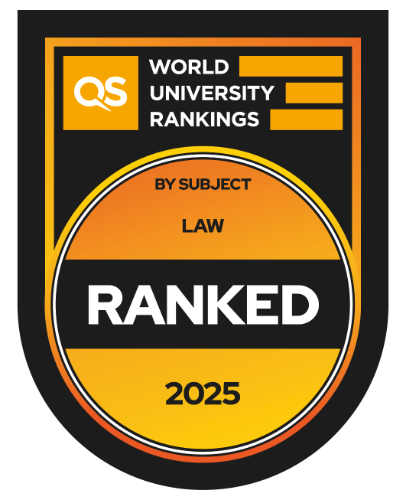-
Courses

Courses
Choosing a course is one of the most important decisions you'll ever make! View our courses and see what our students and lecturers have to say about the courses you are interested in at the links below.
-
University Life

University Life
Each year more than 4,000 choose University of Galway as their University of choice. Find out what life at University of Galway is all about here.
-
About University of Galway

About University of Galway
Since 1845, University of Galway has been sharing the highest quality teaching and research with Ireland and the world. Find out what makes our University so special – from our distinguished history to the latest news and campus developments.
-
Colleges & Schools

Colleges & Schools
University of Galway has earned international recognition as a research-led university with a commitment to top quality teaching across a range of key areas of expertise.
-
Research & Innovation

Research & Innovation
University of Galway’s vibrant research community take on some of the most pressing challenges of our times.
-
Business & Industry

Guiding Breakthrough Research at University of Galway
We explore and facilitate commercial opportunities for the research community at University of Galway, as well as facilitating industry partnership.
-
Alumni & Friends

Alumni & Friends
There are 128,000 University of Galway alumni worldwide. Stay connected to your alumni community! Join our social networks and update your details online.
-
Community Engagement

Community Engagement
At University of Galway, we believe that the best learning takes place when you apply what you learn in a real world context. That's why many of our courses include work placements or community projects.
Peace Operations, Humanitarian Law and Conflict
Course Overview
The LLM in Peace Operations, Humanitarian Law and Conflict provides students with a comprehensive insight into global frameworks of international humanitarian law and human rights protection with the addition of a peacekeeping specialisation. This interdisciplinary programme focuses on UN peacekeeping and related operations to provide insights into the peace operations and conflict resolution frameworks.
This unique programme offering combines issues relating to peacekeeping, international humanitarian law, human rights and conflict resolution to prepare graduates for work in the field of international peace operations with international organisations, non-governmental organisations (NGOs) and as individual advocates.
Course Highlights:
- The Irish Centre for Human Rights is one the world’s premier university-based institutions for the study and promotion of human rights.
- Defence Force experience is recognised. Those who have participated in peacekeeping activities can obtain credit for a full semester course (15 credits) on submission of a written assignment reviewing field experience and evaluating lessons learned.
- Expert lecturers deliver programme modules. Our academics are internationally recognised scholars with world-class expertise and reputations.
- Field trips to the military barracks of the Irish Defence Forces and the opportunity to travel to the International Criminal Court in The Hague.
- Unique qualification on conflict, peacekeeping and human rights through specialised modules such as peace support operations and international human rights.
- Seminars, conferences and workshops ensures engagement with world-leading practitioners and scholars in the field of peacekeeping and human rights law.
- Career Support with assistance in seeking career opportunities by drawing on the expertise of a global network of alumni and an outstanding network of contacts.
- Assessment is primarily through research papers, presentations and minor thesis rather than exams.
Applications and Selections
Applications are made online via the University of Galway Postgraduate Applications System.
Who Teaches this Course
Requirements and Assessment
Assessment for individual modules includes a combination of essays, presentations, group work, and other methods. Students must also complete a research thesis/dissertation of 15,000 words.
Key Facts
Entry Requirements
- Applicants must normally have attained at primary degree level an overall final grade of Second Class Honours Grade 1 (2.1) or equivalent. Those falling short of this standard may be considered where they can demonstrate other appropriate academic accomplishments as well as relevant work experience.
- Candidates who have completed a military command and staff course, or equivalent, at an institute recognised by University of Galway and who have relevant professional experience that, in the opinion of the School of Law, qualifies them to read for the LLM may also be considered.
- Candidates who have significant experience in the field of peace operations and/or international human rights, for example, with international organisations or international NGOs, are encouraged to apply under this rubric.
- International students should refer to the country-specific information section of the International Office website.
Additional Requirements
Recognition of Prior Learning (RPL)
Applicants must normally have attained at primary degree level an overall final grade of Second-Class Honours Grade 1 (2.1) or equivalent. Those falling short of this standard may be considered where they can demonstrate other appropriate academic accomplishments as well as relevant work experience. Candidates who have completed a military command and staff course, or equivalent, at an institute recognised by University of Galway and who have relevant professional experience that, in the opinion of the School of Law, qualifies them to read for the LLM may also be considered.
Duration
1 year, full-time; 2 years, part-time
Next start date
September 2026
A Level Grades ()
Average intake
12
QQI/FET FETAC Entry Routes
Closing Date
Please view the offer rounds website.
NFQ level
Mode of study
ECTS weighting
90
Award
CAO
Course code
LLM-PHC
Course Outline
The programme draws upon the resources of the LLM in International Human Rights Law, with the addition of specialised courses on peacekeeping. The course work begins with a general introduction to international peacekeeping and peace support operations, and continues with a series of specialized courses in such areas as international relations and international organizations, international humanitarian law, refugee law, conflict and post conflict studies, and international criminal law.
The programme recognizes the experience of candidates who have participated in peacekeeping activities in various parts of the world. Thus the programme provides credit for a full semester course (15 credits) in exchange for submission of a written assignment of appropriate length, reviewing field experience and lessons learned.
The programme may also recognize and credit a peacekeeping course of appropriate duration delivered at a Centre/Institute recognized by the University of Galway. However, in order to allow for consistent evaluation, a written paper of appropriate length must be submitted. The maximum credits permitted in the case of any candidate in recognition of field experience or course work completed elsewhere are 15.
Alternatively, the programme is a two-year programme of part-time study, combining two semesters of course work the first year with a third semester the second year, devoted entirely to the research required for preparation of a final dissertation.
The 90 ECTS programme consists of:
Compulsory modules 20 ECTS + Elective Modules 40 ECTS + Disseration 30 ECTS
Course and module offerings and details are subject to change. Below are the list of modules being offered during the academic year 2024/2025. View descriptions of each module here or click on ‘Year 1 (90 credits)’ below to view module information.
Core modules (20 ECTS)
- International Humanitarian Law (10 ECTS)
- Peace Support Operations (10 ECTS)
Elective Modules (Students choose 40 ECTS from a wide range of subject choices)
- International Human Rights Law (10 ECTS)
- Public International Law (10 ECTS)
- International Criminal Law (10 ECTS)
- Contemporary Issues in International Migration Law (10 ECTS)
- European Migration Law (5 ECTS)
- Peace Support Operations (10 ECTS)
- European Convention on Human Rights: Law and Politics (10 ECTS)
- Gender and Human Rights (10 ECTS)
- International Humanitarian Law (10 ECTS)
- Business and Human Rights 2 (10 ECTS)
- International Refugee Law (10 ECTS)
- Human Rights Law Clinic (10 ECTS)
- Climate Justice (5 ECTS)
- The Common European Asylum System (5 ECTS)
- Transitional Justice (5 ECTS)
- Procedure before International Criminal Courts (5 ECTS)
- Counter Terrorism and Human Rights (5 ECTS)
- Critical Race Theory and Human Rights (5 ECTS)
- Transnational Lawyering (5 ECTS)
- International Child Rights (5 ECTS)
- Foundational Theoretical Framework in Disability Law and Policy (10 ECTS)
- Legal Capacity Law and Policy (10 ECTS)
- International Disability Human Rights Clinic (10 ECTS)
- Advocacy and Access to Justice (10 ECTS)
- Inclusive Education Law and Policy (10 ECTS)
- Mental Health Law and Policy (10 ECTS)
- Policing, Security and Rights (10 ECTS)
- Minors, Minority Groups & the Criminal Justice System (10 ECTS)
- Sentencing and Penal Law Policy (10 ECTS)
- Imprisonment and Rights (10 ECTS)
As part of the elective 50 ECTS, students may take up to 10 ECTS from the and LLM International and Comparative Business Law.
Dissertation (30 ECTS)
Module details for the full-time course
Module details for the part-time course
[an error occurred while processing this directive]Why Choose This Course?
Career Opportunities
Graduates have gone on to work with the UN, Organization for Security and Co-operation in Europe (OSCE), North Atlantic Treaty Organization (NATO) and the EU. Others are working with NGOs in conflict and post-conflict environments, including the Democratic Republic of the Congo, Haiti, Liberia, Sudan and Kosovo.
Military and police personnel from Ireland and elsewhere have completed the programme with a view to enhancing their career prospects. The programme will also provide a foundation for those who wish to pursue further studies through a structured PhD.
Who’s Suited to This Course
Learning Outcomes
Transferable Skills Employers Value
Work Placement
Students are advised and encouraged to undertake internships with organisations around the world. There may be some financial support for students undertaking internships abroad.
Study Abroad
Related Student Organisations
Course Fees
Fees: EU
Fees: Tuition
Fees: Student levy
Fees: Non EU
For 2026/27 entrants, where the course duration is greater than 1 year, there is an inflationary increase approved of 1.8% per annum for continuing years fees.
Postgraduate students in receipt of a SUSI grant – please note an F4 grant is where SUSI will pay €4,000 towards your tuition (2026/27). You will be liable for the remainder of the total fee. A P1 grant is where SUSI will pay tuition up to a maximum of €6,270. SUSI will not cover the student levy of €140.
Note to non-EU students: learn about the 24-month Stayback Visa here.
Find out More
Professor Ray Murphy
Programme Director
T: +353 91 493 081
E: ray.murphy@universityofgalway.ie
Queries about this and other LLM programmes in the School of Law can also be directed to lawpostgrad@universityofgalway.ie
What Our Students Say

Offia Favour Ogbugo |
Studying for the Masters in Peace Operations program has been a truly rewarding experience. The teaching structure is perfect for learning as you are taught by experts in seminar style, which gives you the perfect opportunity to interact both with the lecturers and your colleagues. I can say that not only have I received the best education here, I have also been gifted with a realistic view of the Peace Operations and IHL and the skills necessary to succeed in both fields.

Anna Sparynska |
The most encouraging aspect for me was the genuine interest amongst the staff in engaging on a personal level. Whatever the class, I was encouraged to engage in original and critical thinking. Worried at first at my lack of a legal background, my choice to study Peace Operations, Humanitarian Law and Conflict Resolution provided me with a solid legal base while offering modules that were more multidisciplinary in nature. All in all, studying in a place as unique as Galway surrounded by people driven by the same passions, of all ages, from diverse backgrounds, was a once in a lifetime opportunity.









.png)








